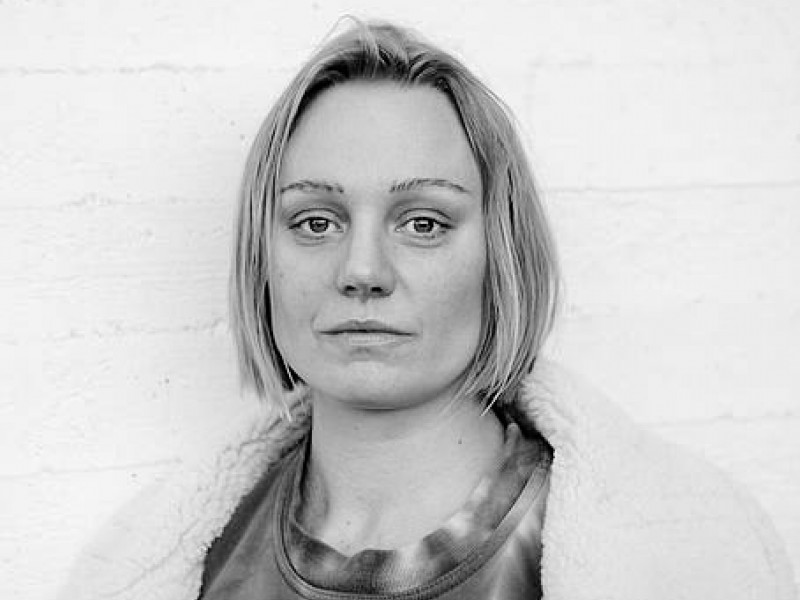Anna Uddenberg, born 1982 in Stockholm, Sweden, lives and works in Berlin. Recent solo and group exhibitions with the artist have taken place at Marciano Foundation, Los Angeles (2019, solo); Bundeskunsthalle, Bonn (2019, solo); Museum Folkwang, Essen (2019); Powerlong Museum, Shanghai (2019); 14. Fellbach Trienniale (2019); the 33rd Biennial of Graphic Arts in Ljubljana (2019); Schinkel Pavillon, Berlin (2019); Migros Museum, Zürich (2019); Moderna Museet, Stockholm (2018); Spazio Maiocchi, Milan (solo; 2018); nGbK, Berlin (2018); Centre Régional d’Art Contemporain Occitaine, Sète (2018); Splendid Cleaners, New York (2018); Athens Biennale, Athens (2018); Evoluon, Eindhoven (2018); Kunst Halle Sankt Gallen, Sankt Gallen (2018) House of Gaga Mexico City (2017); Monash University Museum of Art, Melbourne (2017); Kiasma–Museum of Contemporary Art, Helsinki (2017); Museum of Modern Art, Warsaw (2017), Kamel Mennour, Paris (2017) and at Kraupa-Tuskany Zeidler, Berlin (2017). Her work is part of the collection of Moderna Museet, Stockholm; Kiasma Museum, Helsinki; Sammlung zeitgenössischer Kunst der Bundesrepublik Deutschland, Bonn; Stedelijk Museum, Amsterdam; Boros Collection, Berlin; Ståhl Collection, Norrköping; K11 Foundation, Shanghai; and Zabludowicz Collection, London.
Through the feedback loop of consumerist culture, Anna Uddenberg investigates how body culture, spirituality, and self-staging are intertwined with the mediation and production of subjectivity by new technologies and circulation forms. Her practice integrates approaches to gender theory while acting as a space for reflecting on taste and class, appropriation and sexuality, pushing these questions into new material territories. Based on Judith Butler’s idea of performing gender as a rehearsed act, Uddenberg’s work continues to confront feminine identity in consumer culture and to explore performativity, by using sculpture and performance as visual platforms. The use of automobile skeletal structures and other utilitarian structures in her latest abstract and figurative works refer to the concept of comfort zone and proxies for architecture. The “furnituresque” outlook is a result of multiple rearrangements of everyday objects and materials, which, through the works are set in a new dialogue with one another. These rearrangements combine alien and familiar, as they ultimately suggest a re-evaluation of existing normalities.
